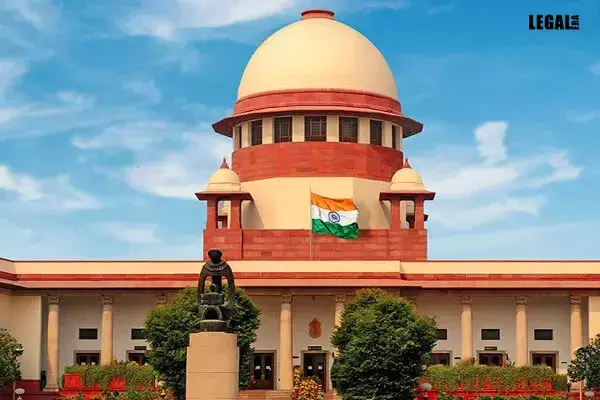Section 529A of the Companies Act: Supreme Court Affirms Secured Creditors' Priority over Customs Act in Company Winding-Up
The Supreme Court has ruled that customs duty owed by a company during winding up will be considered a preferential payment;

Section 529A of the Companies Act: Supreme Court Affirms Secured Creditors' Priority over Customs Act in Company Winding-Up
The Supreme Court has ruled that customs duty owed by a company during winding up will be considered a preferential payment under Section 530(1)(a) of the Companies Act, 1956. However, this customs duty would not take priority over payments due to overriding preferential creditors covered under Section 529A of the Companies Act, including secured creditors.
The Court emphasised that the Customs Act, 1962 does not establish a statutory first charge on customs dues that supersedes the charge granted to secured creditors under Section 529A of the Companies Act, 1956.
Justices Sanjiv Khanna and Sudhanshu Dhulia, part of the Bench, clarified that the provisions of the Customs Act do not undermine the statutory preference outlined in Section 529A of the Companies Act. This section prioritises payments to workers and secured creditors in company winding-up scenarios.
As a result, taxes, cesses, and rates owed to governmental entities under Section 530 of the 1956 Act cannot be given precedence over the payments or debts specified in Section 529A.
In a case involving the Industrial Development Bank of India (IDBI), which was a secured creditor for a company undergoing winding up in 2003, the Supreme Court ruled that the secured creditors have the right to enforce their charge, despite the government dues payable under the Customs Act.
The Court ruled that Section 529A, which came into effect on May 24, 1985, holds supremacy in cases of conflict. This means that when there is a disagreement between Section 529A and other provisions of the Companies Act or any other applicable laws, Section 529A takes precedence.
On the issue whether the Customs Act creates a first charge overriding the charge in favour of the secured creditor, the court ruled that Sections 61, 72 and 142 of the Customs Act do not incorporate a statutory first charge to override the general law.
Section 529A establishes that upon winding up, debts owed to workers and secured creditors hold equal rank and should be paid in a specified manner before other debts.
Additionally, Section 530 of the Companies Act, which deals with preferential payments to those outlined in Section 529A, is subject to the provisions of Section 529A.
The Court noted that IDBI qualifies as an overriding preferential creditor under Section 529A, and if the criteria of Section 530(1)(a) are met, the customs dues would fall under Section 530 as preferential payments.
The Court clarified that the relevant date, without the appointment of a provisional liquidator, would be the date the winding-up order was issued against the company. In the present case, the Court decided that the customs duty became 'due and payable' before 12 months preceding the relevant date, thus not falling under preferential payments.
The Court recognised Section 142A of the Customs Act, inserted after April 8, 2011, to protect overriding preferential creditors' rights under Section 529A of the Companies Act, and noted that it does not impact the present case.
Ultimately, the Court allowed the appeal, setting aside the Andhra Pradesh High Court's judgement, and directed the sale proceeds of auctioned goods to be distributed according to Sections 529A and 530 of the Companies Act, 1956.

